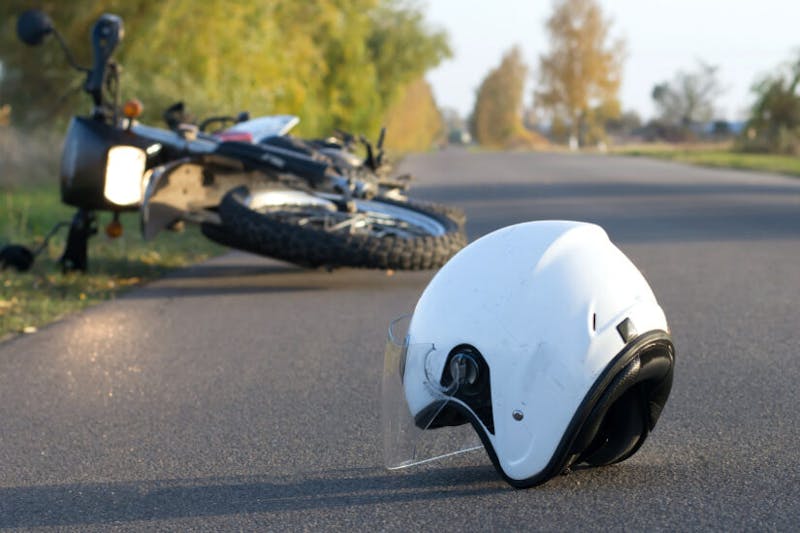
Georgia has one of the strictest and most comprehensive helmet laws in the country today. The law has been in place since 1969 and has played a vital role in preventing serious injuries and saving lives. In this post, we will take a look at Georgia’s helmet law, its significance, and its impact on motorcycle accident claims.
Georgia’s Helmet Law – What You Need to Know
According to Section 40-6-315 of the Official Code of Georgia Annotated (OCGA), any person riding a motorcycle must wear protective headgear. The law applies to riders as well as passengers regardless of their age, gender, or riding experience.
According to knowledgeable motorcycle and car accident attorney in Peachtree Corners, this law applies to all motorcycles. The only exceptions are enclosed cabs, motorized carts, three-wheeled motorcycles that are used for agricultural purposes, and mopeds with a maximum speed of 30 mph.
Georgia’s Department of Public Safety does not have a list of approved helmets. Instead, it states that riders must use helmets that meet the quality standards outlined in Section 571.218 of 49 CFR (Federal Motor Vehicle Safety Standard No. 218).
Notably, failing to wear a helmet is a misdemeanor in Georgia and is punishable by a fine of up to $1,000 and up to a year in jail.
The Significance of Georgia’s Helmet Law – What the Numbers Say
Wearing a helmet is hands down the most important thing you can do to protect yourself while riding a motorcycle. Data shows that a proper motorcycle helmet can reduce the risk of traumatic brain injuries by as much as 69%.
Wearing a motorcycle helmet can reduce the risk of fatal injuries by 37% for operators and by 41% for passengers. Data shows that close to 65% of motorcyclists in the country wear helmets regularly. If all cyclists start wearing helmets, the economic burden caused by motorcycle accident fatalities and injuries – which is estimated to be $1.5 billion per year – can be reduced.
Data also shows that in states where universal helmet laws are in place, 9% of unhelmeted motorcyclists are killed in accidents every year. Conversely, states that do not have such laws see an average of 57% of unhelmeted motorcyclists killed in accidents every year.
Such a drastic disparity in fatality rate shows that universal helmet laws can be highly effective in reducing motorcycle accident-related deaths and injuries. Data also shows that when universal helmet laws are repealed, helmet use among motorcyclists tends to drop sharply, which in turn results in an increase in injury-related fatalities.
Data from the National Highway Traffic Safety Administration (NHTSA) shows that helmet use prevented the death of 84 motorcyclists in Georgia in 2015. Out of the 159 counties in Georgia, four counties reported six to 15 motorcycle accident-related fatalities each. In the remaining 155 counties, less than five motorcycle accident-related fatalities were reported. In many counties, there were no fatalities at all, which is a testament to the effectiveness of Georgia’s helmet law.
Choosing the Right Motorcycle Helmet – Key Things You Should Know
In Georgia, you are required to wear a Department of Transportation (DOT)-certified helmet while riding a motorcycle. To find out whether a helmet meets the required standards, you can look for a sticker that reads ‘FMVSS No. 218 CERTIFIED’.
According to personal injury attorneys in Peachtree Corners GA, there are many reasons why DOT-certified helmets are safer and offer you more protection than ordinary helmets. These include:
- DOT-certified helmets are designed to absorb and withstand impact energy and tend to be quite heavy. They weigh around three pounds, whereas ordinary helmets only weigh around one pound.
- They have a strong layer of inner lining, which is made of sturdy foam like polystyrene and is at least one inch thick. The inner lining in ordinary helmets tends to be much thinner and is often made of soft material, so they do not offer much protection.
- The chin straps in DOT-approved helmets tend to be strong, as they are made of sturdy material and are attached using rivets. Ordinary helmets, on the other hand, have flimsy straps that can come loose in the event of an accident.
Tips to Ride Safely on a Motorbike
- Wear a DOT-approved helmet at all times. Never go unhelmeted even if it is a short trip.
- Sign up for the rider education courses offered by the Georgia Motorcycle Safety Program (GMSP). The GMSP offers training programs for riders of all levels – from beginners to advanced riders.
- Inspect your motorcycle carefully before hitting the road.
- Check the weather before hitting the road. Unless it is an emergency, you should avoid riding your motorcycle in bad weather.
- Do not ride too close to other vehicles, particularly large vehicles like cars and trucks, as it can make it harder for you to stay out of their blind spots.
- Look out for road hazards like large potholes, cracks, bumps, and debris.
- Obey traffic laws and yield the right of way to other vehicles when needed.
- Do not ride your motorcycle after drinking. Remember, there is no such thing as a safe amount of alcohol. Even two drinks can affect your reflexes, reaction time, and judgment, which can significantly increase the risk of an accident.

Types of Injuries that Can Result from a Motorcycle Accident
No matter how cautious you are, all it takes is a momentary act of negligence or recklessness on someone else’s part to cause a motorcycle accident. When it happens, the resulting injuries can be serious. These may include:
- Cuts and lacerations
- Dislocations
- Torn ligaments and tendons
- Broken bones
- Crush injuries
- Traumatic amputation
- Burn injuries
- Injuries to internal organs
- Nerve damage
- Spinal cord injuries
- Traumatic brain injuries
The cost of treating these injuries can be quite extensive. Experienced motorcycle and car accident attorneys in Stone Mountain can help you get the treatment you need by signing a lien agreement with the hospital. Under a lien arrangement, you can get treated without paying any money upfront and reimburse the hospital after your claim is settled.
How Georgia’s Helmet Law Can Impact Your Personal Injury Claim
With helmet use being mandatory under Georgia law, many people ask whether it is possible to receive compensation if you were not wearing a helmet at the time of the accident. The short answer is yes, you can. Having said that, not wearing a helmet can prove to be a costly mistake in this scenario due to Georgia’s comparative negligence law.
Georgia’s comparative negligence law allows you to recover compensation from the other party even if you were partially at fault for the accident. The downside is that your compensation will be reduced proportionately depending on your share of fault. For instance, if you are assigned 20% fault for your mistake, your compensation will be reduced by 20%.
Not wearing a helmet or wearing a helmet that does not meet the DOT’s standards can be considered an act of negligence on your part.
It should be noted that insurance companies are known to unfairly blame motorcycle accident victims, particularly if they were unhelmeted at the time of the accident. They do it so that they can reduce their liability and lower the settlement amount.
A skilled Stone Mountain personal injury attorney can establish the liability of the at-fault party with evidence, make sure you are not wrongly blamed for the accident, and negotiate with them aggressively to get you the compensation you are entitled to.
Damages You Can Recover in a Georgia Motorcycle Accident Claim
The economic damages you can recover include present and future medical expenses, rehabilitation expenses, lost earnings, loss of earning capacity, and property damage. The non-economic damages you can recover include pain and suffering, mental anguish, loss of consortium, and diminished quality of life.
If you were injured by a drunk driver or if you were injured in a hit-and-run accident, you might be able to recover punitive damages on top of the compensatory damages you are already entitled to. Under Georgia law, the maximum amount of punitive damages you can recover from an at-fault party is capped at $250,000.
Choose an Experienced Georgia Motorcycle Accident Lawyer to Maximize Your Compensation
Motorcycle accidents can result in serious injuries that can leave you physically or cognitively impaired. Effective legal representation is important to get the compensation you need to recover from your injuries and get your life back on track.
At The Pendergrass Law Firm, we have highly skilled and experienced Georgia personal injury lawyers who can provide you with aggressive, personalized, and result-oriented legal representation that can get the results you want. Led by our founder Philip Pendergrass – a PAC Board Member of the Georgia Trial Lawyers Association – our legal team is prepared to fight tirelessly to get you the restitution you deserve.
To find out how we can help you with your motorcycle accident claim, call us today at 404-445-5136 or get in touch with us online to schedule a free consultation with a seasoned Georgia motorcycle accident attorney. Please note our Peachtree Office and Stone Mountain Office locations for your reference.


